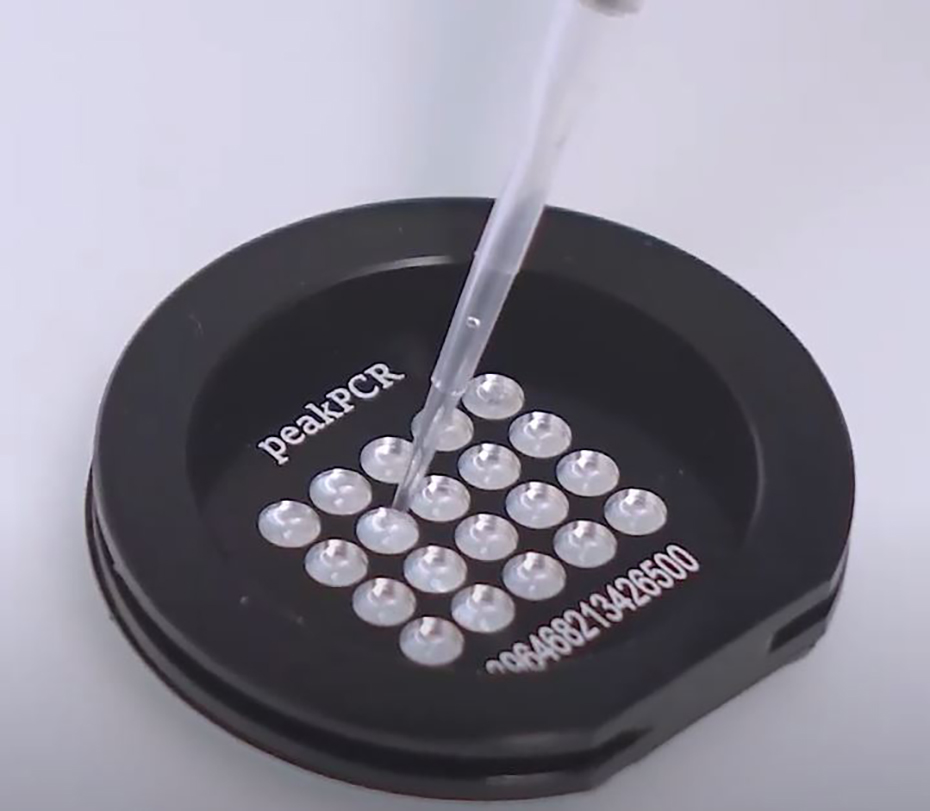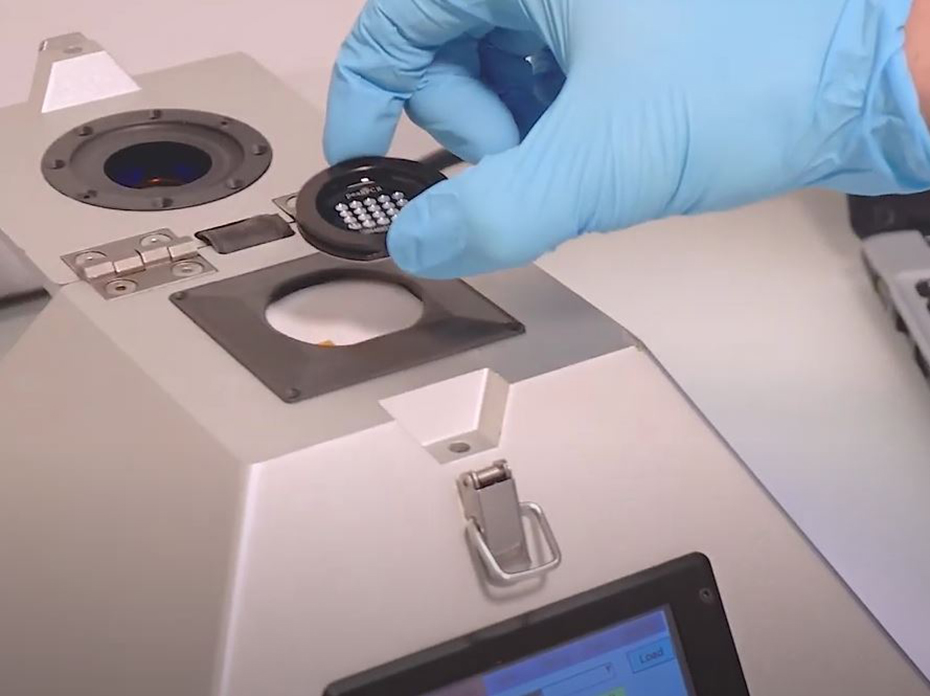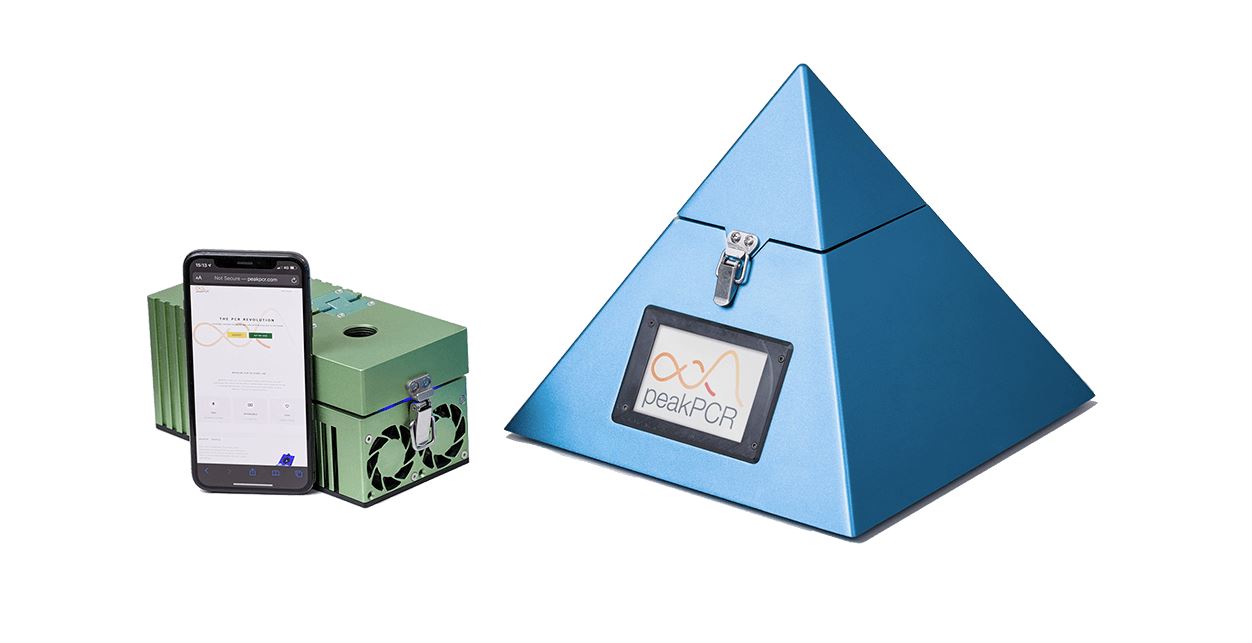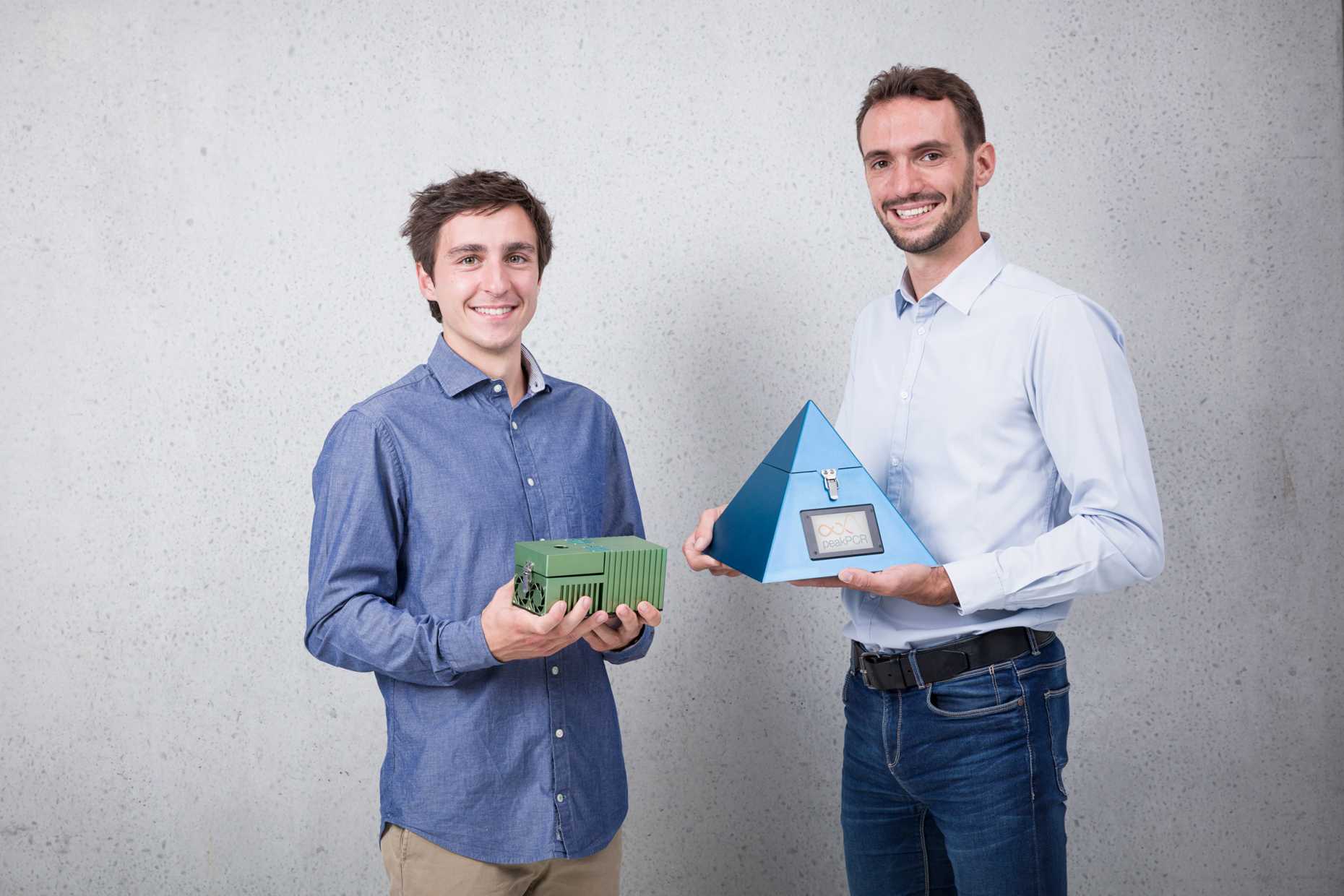The fastest and smallest Corona PCR test
The current Coronavirus pandemic has shown that better, more reliable, and faster testing is crucial to ensure optimal and timely treatment and to contain the spread. ETH start-up diaxxo has created an ultra-fast, real-time PCR testing device for various indications.
ETH Pioneer Fellowship grant holder and diaxxo founder, Michele Gregorini, recently told us more about his unique PCR device.
What major problem does your test device solve?
Today, doctors can’t do real-time tests for viral or bacterial infections on site: samples have to be sent to external labs, which obviously extends the Time-to-Result, or TTR. Given how life-threatening certain infections can be, some doctors may decide to pre-emptively start treatment which could – once results are in – prove to either be unnecessary or ineffective (as is sometimes the case with antibiotics). Thanks to our Point-Of-Care PCR tests, doctors will be able to diagnose and treat patients more quickly, and experts will be able to perform DNA analyses much faster.
How does the technology work?
Our device features an innovative, patented, sample-holding cartridge system that allows us to perform 35 cycles of PCR amplification in less than 20 minutes. We offer ready-made test kits that not only contain all the necessary reagents, but also only require to be filled with a sample extracted from a swab. The kits are stable at room temperature for extended periods of time, leaving more valuable space in fridges or cooling units for other reagents.
Our “peakPCR” device works quickly and reliably, has a modern and aesthetic design, comes in different colours and fits in any lab. Our devices are light, portable, and can also be connected to smartphones.

Is the technology already in use? When will people be able to benefit from your solution?
The device is currently getting the necessary certifications under both Swiss and European law to prove it provides results like machines that are already on the market. Once this is secured, we’ll focus on the US and other markets.
We carried out a successful Corona testing field study in 2020, and we want to introduce an R&D version for laboratories this year. We plan to finalise the certification process in 2022, and release the product for further testing applications for diseases like HIV, the Coronavirus, and others. By the way, our technology can also be used for non-medical applications including water-quality assessments and foodborne pathogen detection such as Listeria and Salmonella.
What are you plans for the future?
We will launch a field study in several African countries in the second half of 2021, using our devices and execute some 3’000 tests. This initiative is made possible thanks to a grant from the external pageBotnar Research Centre for Child Healthcall_made in Basel and the European & Developing Countries Clinical Trials Partnership (EDCTP), a public-public partnership between countries in Europe and sub-Saharan Africa, supported by the European Union.
We envision a future where precise, reliable, and cost-efficient diagnostics can be accessed anywhere by anyone.
We’re a team of six and growing. We’ve just initiated our first investment round and are actively seeking investors.
Contact/Links:
Do you want to get more "News for Industry" stories?
external pageSubscribe to our newslettercall_made
external pageFollow us on LinkedIncall_made
Are you looking for research partners at ETH Zurich?
Contact ETH Industry Relations
ETH spin-offs: facts and figures
Since 1996, 471 spin-offs have been founded at ETH Zurich. ETH transfer, the technology transfer office at ETH Zurich, supports recognized ETH spin-offs in the founding process and in their first years of operation.
With the help of the Pioneer Fellowship Programme, funded by the ETH Foundation, young researchers can develop innovative products and services based on their scientific work at ETH Zurich. A Pioneer Fellowship is awarded to young ETH entrepreneurial minds intending to develop a highly innovative product or service to be exploited commercially and/or for the benefit of society.




